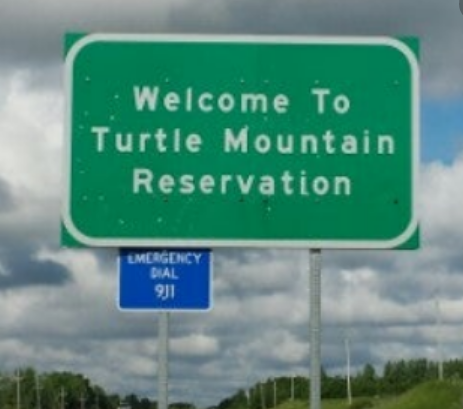BELCOURT, N. D. — The Federal Bureau of Investigation (FBI) has confirmed that law enforcement discovered a deceased body on the Turtle Mountain Indian Reservation on or about May 2. The circumstances of the death is uncertain and details are scarce, but the death is considered suspicious and is being treated as a homicide.

On or about May 2, police recovered a body inside a vehicle from Jarvis Lake on the Turtle Mountain Indian Reservation in North Dakota. Authorities secured the scene and contacted the FBI. Brandon Bave Gonzales, 36, from Williston, N.D. was identified from the location said an FBI spokesperson to Native News Online. He’s a non-tribal member. It is unknown how long his body has been there.
According to the Williston Police Department, Gonzalez had been arrested on December 30, 2019 in Williams County, North Dakota for possession of drug paraphernalia, heroin, which is a misdemeanor crime. Gonzalez had an open warrant for “failure to appear” from the Williams County Sheriff’s Department according to the Williston Police Department. There had not been a missing person’s report filed according to police.
There have been no arrests in connection with Gonzalez’s body being discovered, according to the Rolette County Sheriff’s Department.
Violent crime rates over all on Native American reservations are 2.5 times the national average while some individual reservations reach 20 times the national average of violent crime according to the United States Department of Justice. The FBI is responsible for investigating the most serious crimes in Indian Country— such as murder, child sexual and physical abuse, violent assaults, drug trafficking, public corruption, financial crimes, and Indian gaming violations.
Nationwide, the FBI has investigative responsibilities for some 200 federally recognized Indian reservations. More than 100 agents in 19 of the Bureau’s 56 field offices work Indian Country matters full time. Four field divisions (Albuquerque, Minneapolis, Phoenix, and Salt Lake City) account for 75 percent of all Indian Country cases opened each year.
This is an active investigation.
More Stories Like This
Native News Weekly (August 25, 2024): D.C. BriefsUS Presidents in Their Own Words Concerning American Indians
Wounded Knee Massacre Site Protection Bill Passes Congress
Two Murdered on Colville Indian Reservation
NDAA passes House; Lumbee Fairness Act Advances
Help us defend tribal sovereignty.
At Native News Online, our mission is rooted in telling the stories that strengthen sovereignty and uplift Indigenous voices — not just at year’s end, but every single day.
Because of your generosity last year, we were able to keep our reporters on the ground in tribal communities, at national gatherings and in the halls of Congress — covering the issues that matter most to Indian Country: sovereignty, culture, education, health and economic opportunity.
That support sustained us through a tough year in 2025. Now, as we look to the year ahead, we need your help right now to ensure warrior journalism remains strong — reporting that defends tribal sovereignty, amplifies Native truth, and holds power accountable.
 The stakes couldn't be higher. Your support keeps Native voices heard, Native stories told and Native sovereignty defended.
The stakes couldn't be higher. Your support keeps Native voices heard, Native stories told and Native sovereignty defended.
Stand with Warrior Journalism today.
Levi Rickert (Potawatomi), Editor & Publisher
